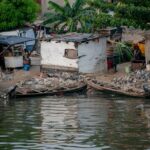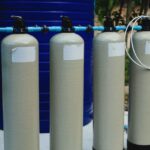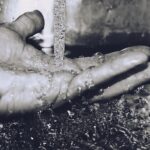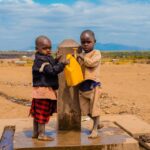The State of Clean Drinking Water in Benin Republic: Progress and Challenges
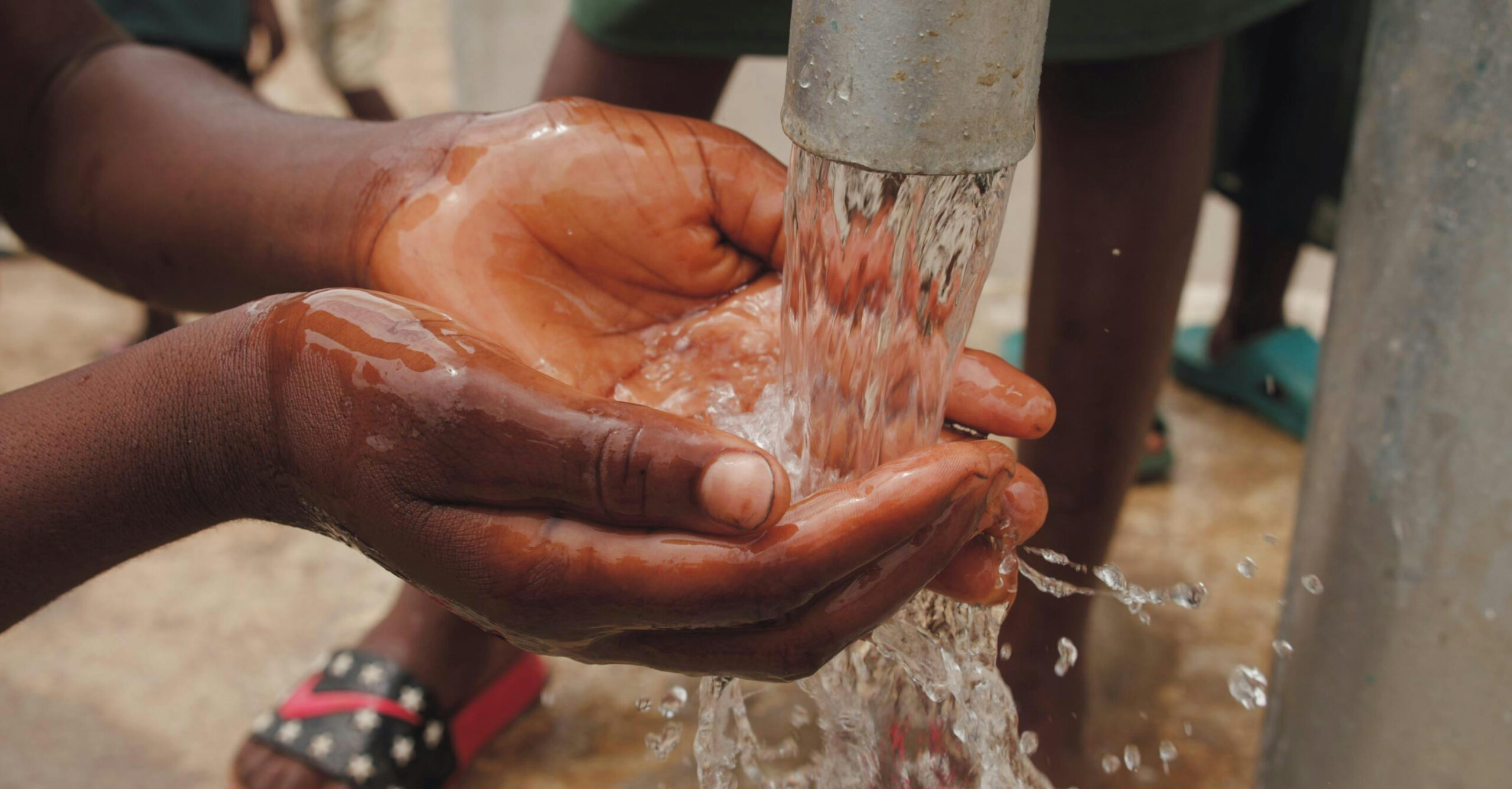
“Water is life, but clean water means health.” This simple truth tells us the importance of safe drinking water. In Benin Republic, access to clean water has improved over the years, but challenges remain, especially in rural areas. While cities have better water infrastructure, many villages still rely on unsafe sources. This article explores where Benin stands today, the major sources of drinking water, and the key challenges the country faces in ensuring safe water for all.
The Current State of Clean Water Access in Benin
Benin has made progress in providing clean drinking water, but access is not equal everywhere. In urban areas, it is safe to say that about 80% of people have access to improved drinking water sources. However, in rural areas, this number drops significantly. Many people still depend on wells, rivers, and small water vendors for their daily supply.
The government, with the help of international organizations, has invested in water projects. New boreholes, improved sanitation facilities, and better water treatment systems have been introduced. Despite these efforts, however, millions still struggle to get safe and affordable drinking water every day.
Major Sources of Drinking Water in Benin
People in Benin get their drinking water from different sources, including:
- Groundwater (wells and boreholes): Many communities rely on wells and boreholes, especially in rural areas. These are often safer than surface water, but without proper maintenance, can become contaminated.
- Surface water (rivers and lakes): Some people still collect water from rivers, lakes, and ponds. These sources are easily polluted by waste and chemicals, making them unsafe for drinking.
- Public water supply systems: In cities, households and businesses get piped water from the national water company. However, supply is not always consistent, and in some areas, the water may still need further treatment.
- Bottled and sachet water: Many people buy bottled or sachet water because they believe it is safer. However, not all brands meet health standards and the cost makes it unaffordable for low-income families.
Key Challenges Facing Clean Water Supply
Despite improvements, Benin still faces several challenges in providing clean drinking water:
- Limited infrastructure: Many rural areas lack proper water systems, forcing people to rely on unsafe sources. Even in cities, water pipes can be old or poorly maintained, leading to leaks and contamination.
- Water pollution: Industrial waste, farming chemicals, and poor sanitation practices contaminate many natural water sources. This makes it harder to find safe drinking water.
- Affordability: While some people can buy bottled water or install water filters, many low-income families cannot. They have no choice but to drink untreated water, putting their health at risk.
- Climate change: Changes in rainfall patterns and prolonged dry seasons are making it harder to find reliable water sources, especially for farming communities.
These challenges show the need for stronger policies, better infrastructure, and community involvement to ensure clean and safe water for all.
Government Efforts to Improve Water Access
The Benin government has been working to improve access to clean drinking water through various projects and policies. Some of the key initiatives include:
- Rural water supply programs: The government, with support from international organizations, has built more boreholes and small water treatment plants in remote areas. These projects aim to reduce the number of people depending on unsafe sources, like rivers and open wells.
- Urban water infrastructure upgrades: In cities, efforts have been made to expand piped water networks, repair old pipes, and improve water quality monitoring. The goal is to provide a more consistent and reliable water supply.
- Public-private partnerships: The government has partnered with private companies to increase investments in the water sector. This has helped fund new projects and improve service delivery.
- Water regulations and policies: Stricter regulations have been introduced to ensure that bottled and sachet water companies meet health and safety standards. Regular checks are conducted to prevent contaminated water from reaching consumers.
Despite these efforts, progress is slow in some areas due to funding challenges, limited technical expertise, and the high cost of expanding water infrastructure.
The Role of NGOs and International Organizations
Non-governmental organizations (NGOs) and international public charities like Aqua Maya play a major role in improving access to clean water in Benin. Some of their contributions include:
- Providing clean water solutions: Organizations like UNICEF and the World Bank have funded and implemented projects to build wells, boreholes, and water purification systems in underserved areas.
- Promoting hygiene and sanitation: Many NGOs educate communities on proper hygiene practices, such as boiling water before drinking and using safe storage methods. This helps reduce the spread of waterborne diseases.
- Training local communities: Some organizations train local people to maintain and repair water infrastructure, ensuring long-term sustainability.
- Advocating for policy changes: NGOs also work with the government to push for stronger water policies and better funding for water projects.
Without the support of these organizations, many rural communities in Benin would still struggle to get access to clean and safe drinking water.
Health Impacts of Poor Water Quality
Unsafe drinking water has serious health consequences, particularly for children and vulnerable populations. Some of the most common health issues linked to poor water quality include:
- Waterborne diseases: Contaminated water spreads diseases like cholera, typhoid, and dysentery. These illnesses can be life-threatening, especially for young children.
- Malnutrition: Frequent diarrhea caused by drinking dirty water can lead to malnutrition, making children weaker and more vulnerable to other infections.
- Long-term health problems: Exposure to heavy metals or harmful chemicals in polluted water can lead to kidney damage, developmental issues in children, and other long-term health effects.
The Link Between Water and Economic Development
Access to clean water is not just a health issue – it also affects economic growth and development. Some key ways water impacts the economy include:
- Agriculture: Farmers need reliable access to water for irrigation. When clean water is scarce, crop production suffers, affecting food supply and income.
- Education: In communities where children must walk long distances to fetch water, school attendance drops. Girls, in particular, are more likely to miss school because of water-related chores.
- Work productivity: Clean water reduces illness, leading to healthier workers and improved productivity. Businesses and industries also rely on a stable water supply to operate efficiently.
- Tourism and investment: Countries with better water infrastructure attract more tourists and investors. Poor water quality, on the other hand, can harm a country’s reputation and limit economic opportunities.
Barriers to Achieving Universal Access to Clean Water
Despite efforts to improve water access in Benin, several challenges continue to slow progress. These include:
- Limited funding: Expanding water infrastructure requires significant investment. Many rural areas still lack proper funding to build wells, treatment plants, and piped networks.
- Population growth: As Benin’s population grows, the demand for clean water increases. Unfortunately, water infrastructure development is not keeping up with this growth, leaving many communities underserved.
- Climate change: Rising temperatures and unpredictable rainfall patterns affect water availability. Droughts reduce the amount of water in rivers and underground sources, while floods contaminate existing supplies.
- Poor maintenance of water systems: Many boreholes and pipes break down due to lack of regular maintenance. Without proper repairs, people are forced to return to unsafe water sources.
- Pollution: Industrial waste, agricultural chemicals, and improper waste disposal contaminate rivers and lakes. This makes it harder to provide clean water, especially in urban areas.
Success Stories
While challenges remain, there are also success stories in Benin where communities have taken action to improve their water situation.
- Community-led water projects: In some rural areas, local leaders have worked with NGOs to build boreholes and small-scale filtration systems. By contributing labor and resources, these communities take ownership of their water supply.
- Rainwater harvesting: Some households and schools have started collecting rainwater in storage tanks for drinking and daily use. This reduces dependence on unreliable public water sources.
- Youth involvement in water advocacy: Young people in Benin are increasingly raising awareness about water conservation and pollution control. Some groups organize clean-up campaigns and educate the public about the importance of protecting water sources.
The Role of Technology in Improving Water Access
Technology is playing a key role in addressing Benin’s water challenges. With new innovations, communities can now access clean water more efficiently and sustainably.
- Solar-powered water pumps: In rural areas where electricity is unreliable, solar-powered pumps are being used to draw water from underground sources. This provides a steady supply without relying on expensive fuel.
- Water purification systems: Portable filtration systems and chlorine dispensers are helping communities treat water at home, reducing the risk of waterborne diseases. Some villages now have small water treatment plants that make river water safe for drinking.
- Smart meters for water management: In urban areas, smart water meters are being tested to monitor water usage and detect leaks. This prevents water wastage and improves supply efficiency.
By investing in these technologies, Benin can make significant progress toward ensuring clean water for all. However, proper funding and technical support are needed to expand these solutions across the country.
Conclusion
Benin has made progress in improving access to clean drinking water, but significant challenges remain. While urban areas have better water infrastructure, many rural communities still rely on unsafe water sources. Issues like poor sanitation, water pollution, and climate change continue to threaten water security.
However, efforts from the government, NGOs, and international partners are making a difference. Investments in boreholes, solar-powered water pumps, and water treatment facilities are helping to expand access. Community education and sanitation programs are also playing a role in reducing waterborne diseases.
Looking ahead, Benin needs stronger policies, better maintenance of water systems, and increased funding to sustain progress. Technology and innovative solutions can also help bridge the gaps in access. With consistent efforts and collaboration, the goal of clean water for all in Benin can become a reality.
Sources
3. https://www.unsdsn.org/news/benin-aims-to-increase-drinking-water-service-coverage-to-100-by-2026/

